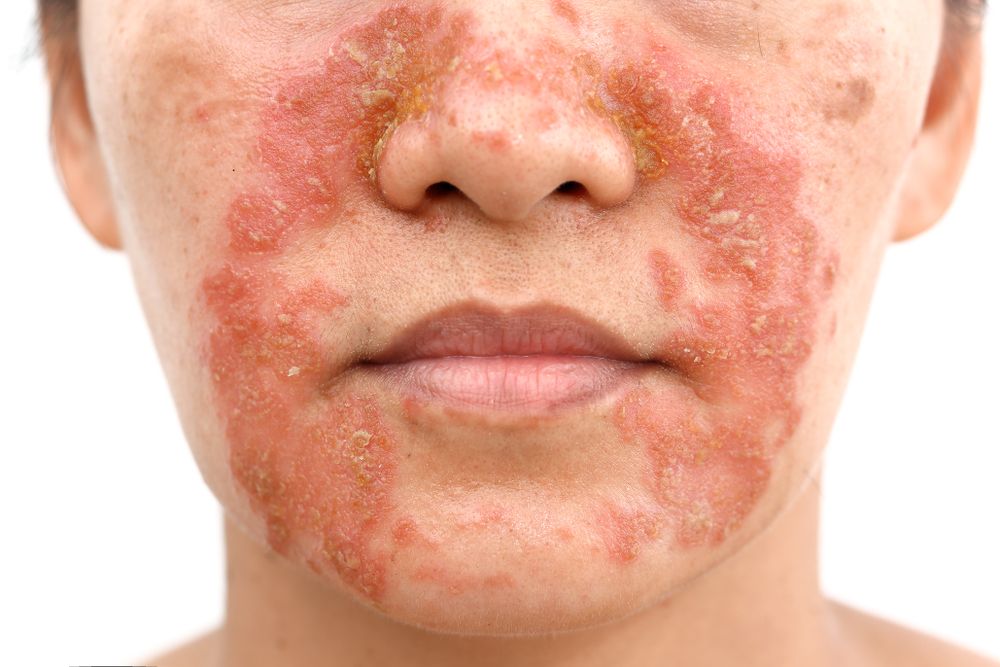- Acne
- Actinic Keratosis
- Aesthetics
- Alopecia
- Atopic Dermatitis
- Buy-and-Bill
- COVID-19
- Case-Based Roundtable
- Chronic Hand Eczema
- Chronic Spontaneous Urticaria
- Drug Watch
- Eczema
- General Dermatology
- Hidradenitis Suppurativa
- Melasma
- NP and PA
- Pediatric Dermatology
- Pigmentary Disorders
- Practice Management
- Precision Medicine and Biologics
- Prurigo Nodularis
- Psoriasis
- Psoriatic Arthritis
- Rare Disease
- Rosacea
- Skin Cancer
- Vitiligo
- Wound Care
Article
Developments in atopic dermatitis treatments
Author(s):
New atopic dermatitis treatment developments earn “hot topic” status at AAD.
New atopic dermatitis treatment developments earn “hot topic” status at AAD. (©WarutChinsai/Shutterstock.com)

Dr. Guttman

Emma Guttman, M.D., Ph.D., professor of dermatology at Mount Sinai, remembers presenting on atopic dermatitis at American Academy of Dermatology meetings in years’ past. She always wanted to include a slide about developments in atopic dermatitis treatment, but her developments slide would be empty or feature only one or two developments.
“Now, I don’t have enough space for all the drug options in development,” says Dr. Guttman, who presented this year during the Hot Topics panel on new developments in atopic dermatitis, during the 2019 American Academy of Dermatology Annual Meeting in Washington, DC.
Atopic dermatitis is emerging as the most common inflammatory skin disease in children and even in adults, according to Dr. Guttman. Until recently, dermatologists and their patients had few, if any, safe long-term options for treating especially more severe disease, she says.
“If we wanted to treat a moderate-to-severe atopic dermatitis patient, we would treat them with either an immune suppressant or phototherapy, which isn’t feasible for many patients,” Dr. Guttman says. “Now, with new science emerging in the last few years, there have been a lot of developments in therapeutics. We have the first biologic dupilumab approved for adults with atopic dermatitis, and we’re awaiting approval of dupilumab in adolescents. Many, many more are coming in phase 1, 2 and 3 trials of both biologics and also small molecules, such as Janus kinase (JAK) inhibitors.”
Having the one approved biologic to treat moderate-to-severe atopic dermatitis has been a game-changer, according to Dr. Guttman. For patients who don’t have insurance or don’t respond to dupilumab, there are clinical trials that dermatologists are conducting on atopic dermatitis or that they can refer their patients to, she says.
There’s more on the atopic dermatitis treatment horizon. Researchers are looking into biologic drugs that might reduce the amount of injections patients need or result in a cure. In essence, the drugs aim to result in “tolerance,” meaning the patient’s disease might not return, according to Dr. Guttman.
“We don’t know if that will happen but there is hope, and that would be amazing,” Dr. Guttman says.
Disclosures:
Dr. Guttman is has consulting, research and/or other ties to Abbvie, Allergan, Almirall, Anacor Pharmaceuticals, Asana Biosciences, Celgene Corporation, Dermira, Eli Lilly and Company, Escalier, Galderma Research & Development, Glenmark Generics, Janssen Pharmaceuticals, Kyowa Hakko Kirin Pharma, Leo Pharma, Medimmune, Novartis, Pfizer, Regeneron, Regeneron Pharmaceuticals, Sanofi-aventis, Sanofi/Regeneron, Stiefel a GSK company, Theravance Biopharma and Vitae Pharmaceuticals.
Newsletter
Like what you’re reading? Subscribe to Dermatology Times for weekly updates on therapies, innovations, and real-world practice tips.











